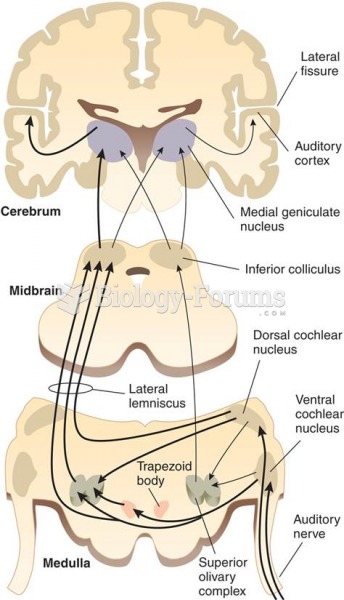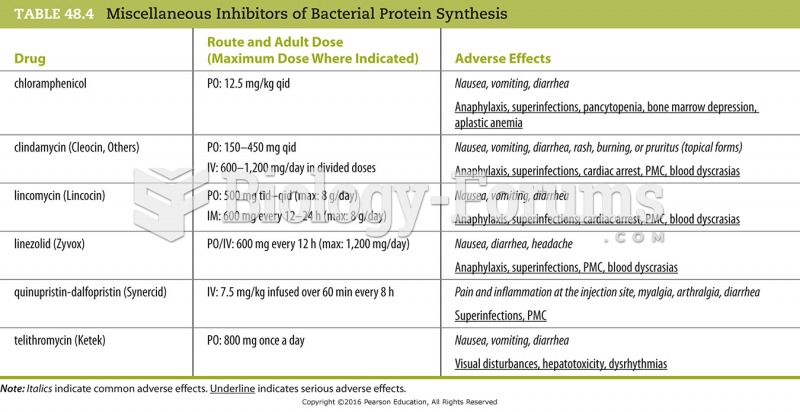Answer to Question 1
Correct Answer: 3
Rationale 1: The nonspecific body defense recognizes common bacterial receptors.
Rationale 2: Complement is part of the nonspecific body defense.
Rationale 3: The specific immune system forms memory cells after the resolution of infection.
Rationale 4: Phagocytes are part of the nonspecific body defenses.
Global Rationale: The body has the ability to mount a line of defense that is specific to certain threats. For example, a specific defense may act against only a single species of bacteria and be ineffective against all others. Important aspects of this immune response include specificity, being systemic, and having memory. The nonspecific body defense recognizes common bacterial receptors. Complement is part of the nonspecific body defenses. Phagocytes are part of the nonspecific body defenses.
Answer to Question 2
Correct Answer: 2
Rationale 1: Although fluid overload can cause edema, it is not the cause of edema in inflammation.
Rationale 2: Increased capillary permeability allows plasma proteins such as antibodies and complement to exit the blood and enter the inflamed tissue. Water follows the proteins. Explanation to the client should be simple and use easily understandable terminology.
Rationale 3: Although blocked lymphatic drainage can cause edema, it is not the cause of edema in inflammation.
Rationale 4: Increased blood flow causes warmth and redness.
Global Rationale: The central purposes of inflammation are to contain the injury, destroy the pathogen, and initiate repair of the area. Histamine is a key chemical mediator of inflammation. When released at an injury site, histamine dilates nearby blood vessels, causing the capillaries to become more permeable. Plasma, complement proteins, and phagocytes can then enter the area to neutralize microbes or their toxins. The affected area may become congested with blood, which can lead to significant swelling and pain. This response is not related to the amount the patient is drinking, blocking of the lymphatic system, or extra blood in the leg.







